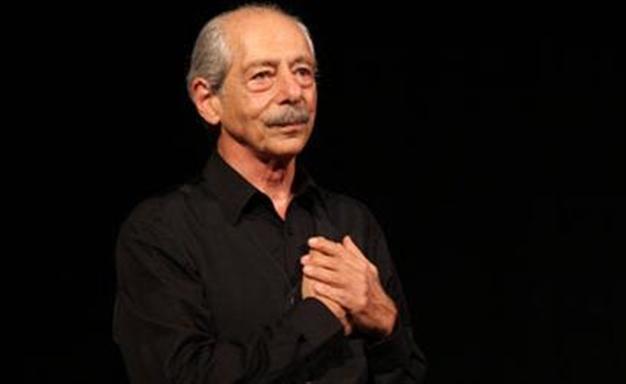Playwrights censoring their plays, prominent Turkish actor says
ISTANBUL

Turkish theater legend Genco Erkal, speaking to Ahmet Hakan of daily Hürriyet, has claimed that many playwrights censor their plays to receive support from local municipalities.
“Many playwrights agree to meet the requirements of municipalities in order to receive financial support. They change the text of their plays; they change costumes and remove parts from the play. They make the plays reasonable enough,” Erkal said.
Upon a question about the withdrawal of state support for private theaters, Erkal said his theater had not received support for a year because of its support for the Gezi events, and claimed the situation is also the same for theaters staging political plays.
“For example, one night the actors posted a tweet, saying ‘we are canceling the play tonight; we will all go to Gezi together.’ But in reality the audience number was too low – about 15-20 – in the theater that night and they posted it to save face,” he said.
“Censorship was excessive in the era following the Sept. 12, 1980 coup. We wanted to perform Yaşar Kemal’s ‘The Legend of Mount Ararat.’ The play did not have an element to bother the government, but the words ‘Kurdish landlords’ were used in a few sentences. The censorship committee examined the play’s text and highlighted this term in red, saying ‘the words Kurdish landlords cannot be used in this play,’” he added.
No ministry support During budget talks in Parliament on Nov. 18, Culture and Tourism Minister Ömer Çelik said his ministry would not support "plays that have hate crimes or scenes of sexual violence," following criticism from opposition deputies.
“If a privately owned theater’s play [which requests the ministry’s support] has a hate crime, scene of sexual violence or any statement that depicts Turks as having committed genocide, insults Kurds, marginalizes Alevis or has any statement that rules out the [presence of] Armenians, then my stance is clear. I will not spend the financial sources accumulated by our citizens’ taxes on these plays,” said Çelik.
 Turkish theater legend Genco Erkal, speaking to Ahmet Hakan of daily Hürriyet, has claimed that many playwrights censor their plays to receive support from local municipalities.
Turkish theater legend Genco Erkal, speaking to Ahmet Hakan of daily Hürriyet, has claimed that many playwrights censor their plays to receive support from local municipalities.